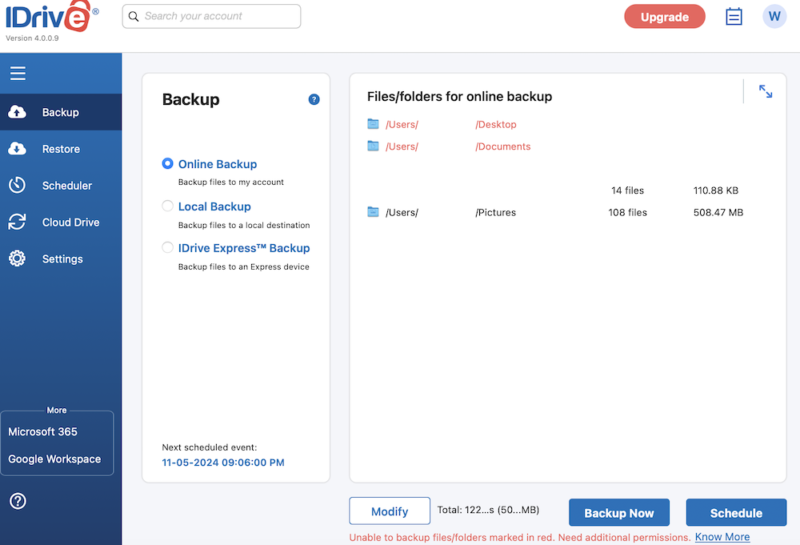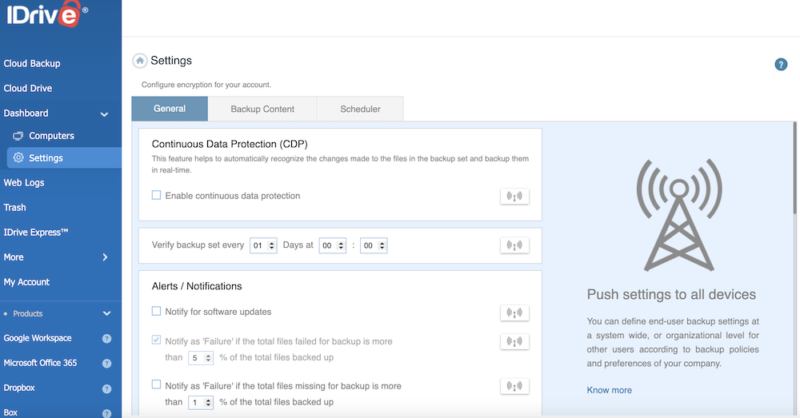How to Create a Data Backup Plan & Strategy in 4 Easy Steps in 2025
A data backup plan is your insurance policy against data breaches and losses. It helps you secure your business data and maintain operations in case of disaster. Learn how to design and implement a data backup strategy to safeguard your data.
If you’ve experienced data losses before, you know how essential a data backup plan is. Even if you haven’t, we recommend you set one up to protect your business from unforeseen data loss. An effective backup plan can help you quickly restore your data and resume normal business operations when something unexpected does occur.
If you understand the importance of a data backup strategy but don’t know where to start, this guide is for you. We’ll take you through how to create a data backup plan and show you the different methods you can choose from. When you’re ready to pick a provider, check out our list of the best cloud backup services and why we recommend them.
-
12/06/2024 Facts checked
Article rewritten to include up-to-date information about data backup strategies and tools.
What Is a Data Backup Strategy?
A data backup strategy is a plan to protect your personal or business data from losses and restore it in case of system failure or other catastrophes. You can use data backups to store any digital information, including datasets, documents and applications. The data is sometimes stored in multiple locations to ensure it is readily available when necessary.
Knowing the size of your business, the amount of data you want backed up and the budget you’re working with can help you develop a solid data backup strategy. If you opt for an online backup strategy, we recommend IDrive and Backblaze.
Does Your Business Need a Data Backup Plan?
Yes, your business needs a backup plan. Not only does it protect critical data, but it also keeps you from system downtime, which costs the business money. Here are the other reasons why you need a data backup plan for your business.
- Prevents data losses: Data backup lets you keep business data safe from losses that result from human error, malicious attacks, power outages, natural disasters and software or hardware failure.
- Protects data from cybercriminals: Data backups offer data protection, where sensitive data is kept away from data breaches and the prying eyes of cybercriminals. Common cybercrime attacks include DDoS attacks, malware, ransomware and zero-day exploits.
- Maintains operational continuity: A data backup system lets you recover data quickly in case of a catastrophe. This reduces the amount of downtime and financial losses that may result from it.
- Upholds compliance: Regulations such as the GDPR and HIPAA require businesses to keep secure backup systems of customer data. Having a data backup and recovery plan helps your business remain compliant.
- Maintains business reputation: Data loss is usually detrimental to a business’s reputation. Keeping critical business data secure using backup storage options helps you prevent data breaches and maintain customer trust.
- Saves you money: Data backups help you save on costs. Paying for data backup software is definitely cheaper than getting a data breach resolved.
How to Create a Data Backup Strategy for Your Business
To create a data backup strategy for your business, you’ll need to assess the scope of the data you want to store. Choose a backup solution, backup method and frequency. Then, implement the backup plan and ensure it is working optimally. Let’s take a closer look at the process.
What Are the Types of Data Backup?
The five main types of backup are full, incremental, differential, cloud and tape backup. The backup methods you pick depend on how often you intend to run the backup process and the recovery time objective you have set for your business. You can use one or all of the backup methods listed below.
- Full backup: This method allows you to make a backup copy of all your business data in a single backup cycle.
- Incremental backup: This method copies only the data and files that have been added or modified since the last backup, whether it was a full or partial backup.
- Differential backup: This method copies only the data and files that have been added or modified since the last full backup.
- Cloud backup: This method stores copies of your data on remote servers that are owned and run by cloud service providers.
- Tape backup: This method stores the replicated data in a magnetic tape cartridge for the short or long term.
What Is the 3-2-1 Backup Rule?
The 3-2-1 backup rule is a data backup planning method that recommends storing three copies of your data in two different locations, with at least one of them being an off-site backup location. This data protection strategy ensures you can restore files even in the face of unprecedented data loss and other catastrophic events.
Final Thoughts
Data backup planning is essential to keeping data safe, and guarantees smooth business operations and prompt data recovery in case of a disaster. To develop a data backup plan, assess the scope of your data and choose a backup solution, method and frequency that works for your business. Finally, implement the backup system to ensure it works optimally.
Do you already have a data backup strategy in place, or are you looking to create one? If you have one in place, which method are you currently using? Does it work well for you, or are you seeking a better option? Let us know in the comments, and as always, thank you for reading.
FAQ: Data Backup Best Practices
The 3-2-1 backup rule is the optimal recommended backup storage strategy because it ensures you have multiple data copies that can survive multiple disaster types.
The incremental backup method is the backup strategy that stores only files with the archive bit set but does not mark them.
You should store backup media off-site to protect your data from physical damage and cyber threats.
The best way to back up data for a small business is to use cloud service providers and local backup like a NAS drive or an external hard drive.




